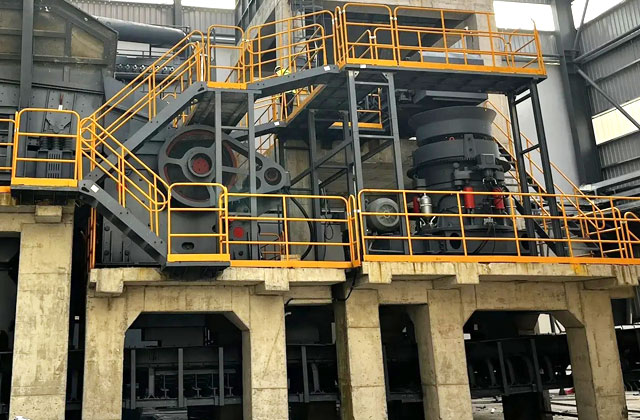A primary rock crusher is an essential machine in the mining and construction industries, responsible for reducing large rocks into smaller, more manageable pieces. This equipment is crucial in the initial stages of mineral processing, providing the necessary size reduction before further processing or use. If you’re looking for a primary rock crusher for sale, there are several factors to consider to ensure you make the right purchase.

Types of Primary Rock Crushers
- Jaw Crushers: Jaw crushers are the most commonly used primary crushers. They use compressive force to break down large rocks. The rocks are placed between two rigid surfaces, one of which moves inward towards the rock, causing it to break. These crushers are known for their reliability, high throughput, and ability to handle hard, abrasive rocks. They are ideal for applications where a significant amount of material needs to be processed quickly.
- Gyratory Crushers: Gyratory crushers function similarly to jaw crushers but with a circular gap. They use a gyrating cone inside a concave bowl to crush rocks. These crushers can handle a higher capacity than jaw crushers and are often used for very large-scale projects. They offer high efficiency and are suitable for crushing hard and abrasive materials.
- Impact Crushers: While more commonly used as secondary crushers, some models can be used as primary crushers. They use impact rather than pressure to crush the material, making them suitable for softer rocks or where a more uniform particle size is required.
Key Features to Consider
- Capacity: Depending on your project, you’ll need a crusher that can handle the desired throughput. Crushers are rated by the amount of material they can process per hour.
- Feed Size: Ensure the crusher can handle the maximum size of the rock you need to process. Oversized feed can damage the crusher or lead to inefficient processing.
- Mobility: If your project requires moving the crusher from one location to another, a mobile crusher may be necessary. Mobile crushers offer the flexibility to move the equipment closer to the excavation site, reducing transportation costs and improving efficiency.
- Durability and Maintenance: Crushers are a significant investment, so it’s essential to choose a model known for its durability and ease of maintenance. Regular maintenance is crucial for extending the lifespan of the equipment and ensuring it operates at peak efficiency.
- Cost: Prices for primary rock crushers vary widely based on capacity, features, and brand. It’s crucial to balance cost with the features you need and the quality of the machine. Sometimes, investing in a more expensive, high-quality crusher can save money in the long run due to reduced maintenance costs and longer service life.
Investing in a primary rock crusher is a critical decision for any mining or construction project. Understanding the different types of crushers, their features, and the factors to consider can help ensure you choose the right equipment for your needs. Whether you’re looking for a new or used machine, there are many options available to suit various budgets and requirements. Always prioritize reliability, capacity, and maintenance ease to get the most value from your investment.

